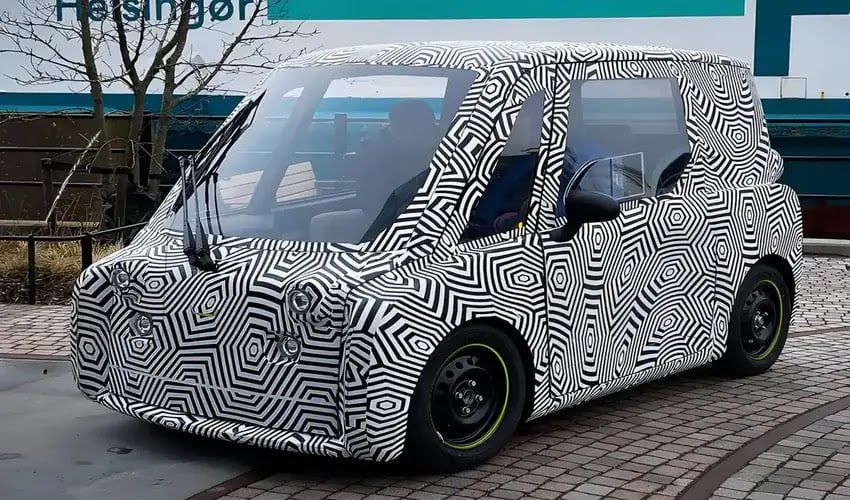The E-Miles L7e: A Revolutionary 3D Printed Electric Car

The automotive industry is experiencing a significant transformation propelled by 3D printing technology. This innovative approach is unlocking numerous opportunities in electric vehicle manufacturing. For instance, it facilitates the creation of tailored prototypes and the fabrication of intricate parts at reduced costs and increased efficiency. As a testament to 3D printing’s pivotal role in automotive advancements, we have the recent unveiling of the e-Miles L7e by Spanish firms The e-Miles Company and Malena Engineering. This electric quadricycle model represents a groundbreaking achievement, with an impressive 90% of its components crafted through 3D printing, spanning from body elements to exterior features.
For some time now, the city of Helsingborg and the University of Lund have collaborated closely with The e-Miles Company on the development of this vehicle. The project was unveiled to the public at the inauguration of an innovation center in Helsingborg. The e-Miles L7e represents a significant step forward in urban mobility and sustainable goods transportation. What sets this vehicle apart is its innovative design tailored to the urban environment. Unlike traditional cars, the e-Miles L7e is equipped with a joystick instead of a steering wheel and pedals, making it accessible to individuals with reduced mobility. Moving forward, the e-Miles L7e will undergo rigorous testing in Helsingborg, positioning the city as a frontrunner in European mobility and intelligent transportation solutions.

(Photo Credits: Helsingborg)
Innovations Proposed by the E-Miles L7e
Turning to the role of 3D printing in developing the e-Miles L7e, it’s noteworthy that the vehicle boasts an aluminum chassis complemented by a 3D printed body. Through additive manufacturing, an impressive 90% of interior and exterior components have been realized, contributing significantly to reducing CO2 emissions during production. The e-Miles Cargo measures 2.95 meters and weighs 600kg. Beyond its use of 3D printing, the e-Miles L7e distinguishes itself in the automotive landscape by adopting a joystick interface instead of traditional pedals and steering wheel. This thoughtful design choice not only enhances accessibility but also ensures safety, leading to the vehicle’s double homologation. Notable mechanical specifications include its 4 kW batteries, capable of an 8-hour recharge cycle, and an 8 kW motor, propelling the car to a maximum speed of 85 km/h.
As part of an initiative to develop efficient and intelligent logistics solutions, Malena Engineering, the parent company, also collaborated with Inter IKEA to define the prototype’s requirements. In pursuing innovative mobility solutions, a design featuring a front folding door was selected, facilitating more effortless loading of wheelchairs or cargo while maximizing interior space.

(Photo Credits: 3Dp)
As the e-Miles L7e enters its testing phase, Helsingborg and Lund University have formalized their commitment to exploration by signing a letter of intent with The e-Miles Company. This partnership aims to explore various applications for the company, with Helsingborg poised to integrate it into its logistics network. Undoubtedly, this model stands as a revolutionary step forward in the effort for eco-friendly and accessible mobility solutions.
What do you think of this new 3D printed electric quadricycle? Let us know in a comment below or on our LinkedIn, Facebook, and Twitter pages! Don’t forget to sign up for our free weekly newsletter here for the latest 3D printing news straight to your inbox! You can also find all our videos on our YouTube channel.
*Cover Photo Credits: ABC






